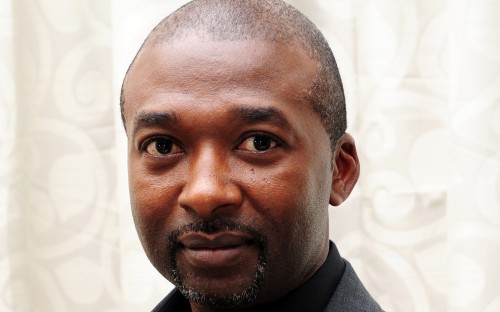The Manchester Business School graduate has enjoyed a grand profile in the communications industry. He is six years out of the top job at Lycamobile – yet he is not done with the business of phones.
The executive has had an extensive career: stints at T-Mobile, Etisalat Nigeria and Virgin Mobile have been proceeded by a foray into his own international business consultancy as well as a B2B telecoms solutions company, his latest entrepreneurial venture.
An MBA degree is marketed as a fast-track to a dream career – but this view is wrong, Ernest asserts. “Those cases are few and far between,” he deadpans. But for Ernest, a former accountant-turned global telecoms exec, it has been a crucial step on his leadership-intensive career path.
“What I gained was confidence, and a balance to my accounting skills,” he says. “It’s definitely been useful and continues to be useful, and in many different aspects,” adds Ernest.
It has been a long time since he was back on campus, however. He graduated from MBS back in 2000, when the degree was still something of a rarity. Part of his choice came down to the fact that he supports the Manchester United football team, but we can forgive him for that.
Ernest is unlikely to spend much time at Old Trafford, however. After a stint as an auditor at parcels giant UPS, who initially funded his MBA degree, he delivered a job as head of wholesale operations at T-Mobile UK, then called One 2 One.
“I could tell One 2 One was going to be part of a huge industry,” says Ernest, inquisitive and calm in his replies. His prediction was spot on. After merging with rival Orange to become EE, the combined companies posted 2013 turnover in the region of £6.4 billion.
After joining T-Mobile in 2001, Ernest led the launch of services to a bevy of mobile virtual network operators (MVNOs) including Virgin Mobile, generating earnings in excess of £200 million.
He was promoted to program director in 2005, and led one of the most aggressive retail expansion schemes the UK has ever seen.
“At T-Mobile, the big phone distributors had a stranglehold on all the operators, so everybody was building up their own retail estates,” says Ernest.
He oversaw the opening of 250 stores across Britain, leading a team of more than 150. It was exhilarating, he says. “We delivered the last store one day before the deadline.”
After some nine years at the now huge, merged telecoms corporation, he wanted a tougher challenge, and quit without a firm job offer – although his reputation ensured that blue-chip companies made their interests known.
That challenge came in the form of Lycamobile, the virtual mobile phone company which, after conquering Europe, expanded into the US and Canada two years ago.
The firm is famed for its cheap international calling rates in the UK, and has raked in 30 million customers across 17 countries. Ernest can be thanked for much of that global expansion; he developed the operational plan to underpin the ambitious excursion.
Not that it was easy. “Aligning everything in the program and making sure it was rigorous [was the biggest challenge],” he says. But he craved the excitement. “You say challenging [but] to me it was home.”
Yet some 17 countries were seemingly not enough. Ernest set his sights on Nigeria – a comparatively untapped market, which had huge growth potential. After two years at the helm of Lycamobile, he joined Etisalat Nigeria as director of business and high value marketing in 2009.
He had phenomenal success in the African country, he says, and was at the peak of his career. So why did he call it quits after just two years? Part of the reason was his family, who seemed to long for a return to their home in the UK – and the MBA graduate fancied his chances at management consulting.
“The variety of projects and people to work with and countries – I’ve always found that to be [appealing],” says Ernest of the function.
In 2011 he set-up Right Instinct International, an international business consultancy practice based in the UK and Nigeria.
It has proved successful so far. A project with Third Dimension Technologies, a geo mapping business, saw Ernest’s firm help the company secure a $5 million mapping contract. “This is where the MBA helps me, when I put proposals together,” he enthuses.
Operations are small, he says, but the consultancy has secured blue-chip clients and large contract wins in West Africa, the Caribbean and the UK.
Ernest still has a lust for telecoms, however. In 2012, he and a partner launched Business Telecoms Solutions, a B2B telecoms services business which is based in the UK. The company was funded through personal investment.
He sees it as a long-term growth firm, although they have hit a break-even point already.
Yet the two are not mutually exclusive – each business helps prop up the other.
The two ventures work hand-in-hand – for now. The telecoms executive has some audacious ambition, but it wouldn’t be the first time Ernest has worked wonders on the sector. “If it becomes, no let me say when it becomes, a multi-million pound company, then we’ll reassess our focus.”
RECAPTHA :
fa
b7
ce
ef








